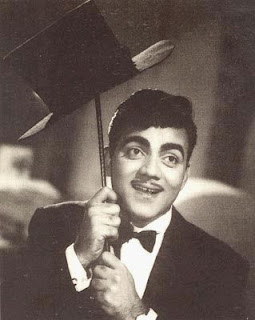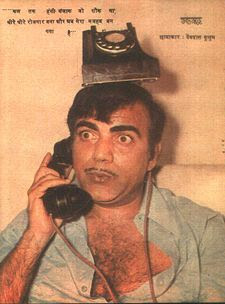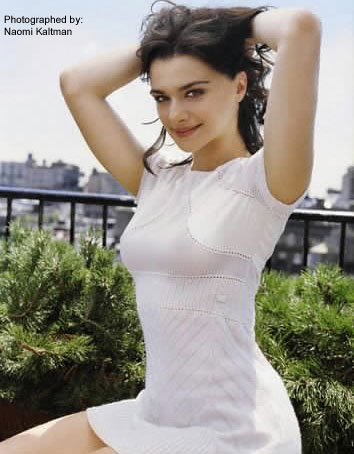Mehmood – the versatile comedian of bollywood.
 Mehmood had been an indispensable comedian of the 60s and 70s and most of the bollywood films made during that era became successful due to his brilliant performance. He started his career by performing in small roles and even negative roles like the one he played in Guru Dutt’s Pyaasa in 1957, where he played the role of the brother of Guru Dutt, who was only interested in money.
Mehmood had been an indispensable comedian of the 60s and 70s and most of the bollywood films made during that era became successful due to his brilliant performance. He started his career by performing in small roles and even negative roles like the one he played in Guru Dutt’s Pyaasa in 1957, where he played the role of the brother of Guru Dutt, who was only interested in money.But with the early 60s, he got roles in probably every alternative film. He performed well in the film Ziddi, with Subha Khote, where the main role was played by Joy Mukherjee and Asha Parekh. Manna Dey’s song “mai tere pyar me” composed by SD Burman became a big hit. Even in Love In Tokyo, Mehmood and Subha Khote supported Joy Mukherjee and Asha Parekh.
In Gumnaam, he got a typical role of a South Indian cook and he created relief scenes in the otherwise crime thriller. Rafi’s song “hum kale hai to kya hua dilwale hai” composed by Shankar Jaikishan was picturised keeping Mehmood in mind. Many actors later on imitated him in similar type of roles.

Mehmood played the role of a Kashmiri boatman in the film Aarzoo. Amidst romantic performance of Rajender Kumar and Sadhna, he played his serio-comic role very well. In Parosan, he played the role of a music teacher who taught music to Saira Banu. But he entered into music contest with Sunil Dutt, where the songs were sung by Kishore Kumar. Manna Dey’s song “ek chatu naar”, “sawaaria”, had become immortal with passage of time.
Even in Pyar Kiye Jaa, he acted in the role of the son of Om Prakash and selected Mumtaz for his film. Shashi Kapoor and Kishore Kumar were the other heroes. No-one sponsored his films. Manna Dey’s song “o mere naina” became superduper hit.
It is difficult to highlight the notable films of Mehmood who had acted in more than 100 films, including Bombay to Goa, Do Kaliya, Kunwara Baap, etc. His films should be restored for new actors to learn the variation in comedy acting.
By: Rumi Chatterji.

